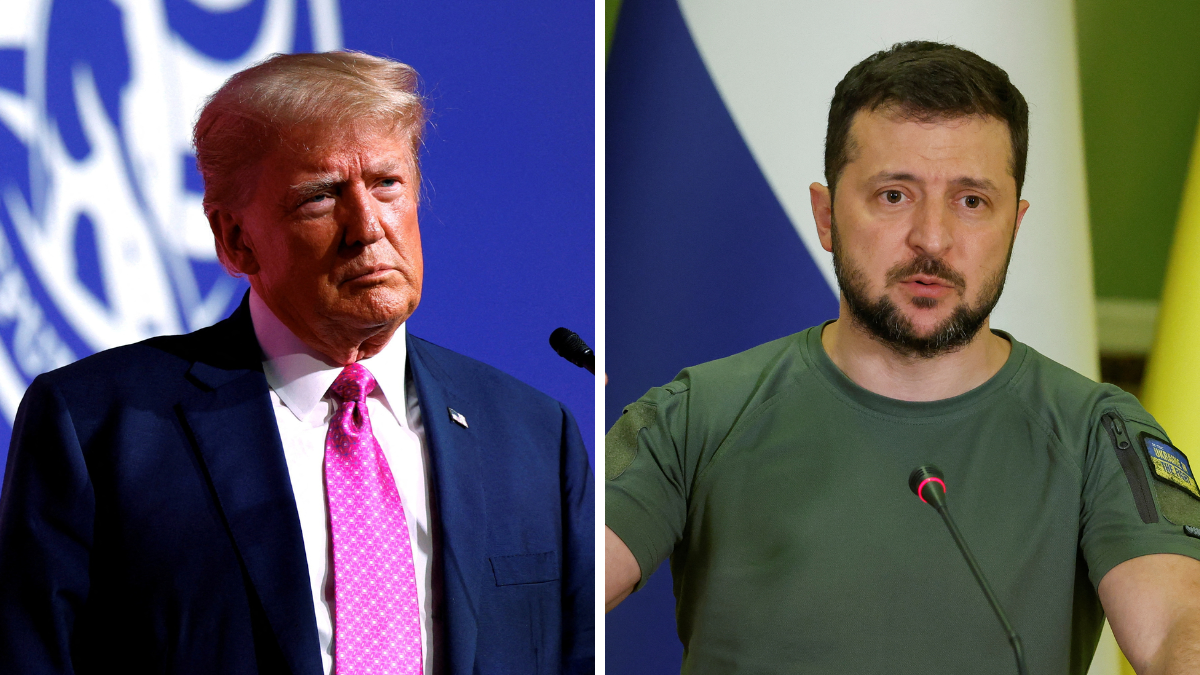
Trump Suggests U.S. Should Claim $500B in Ukraine’s Natural Resources as Compensation for Military Aid
Former US President Donald Trump has made a bold and controversial comment, suggesting that the US should receive a significant piece of Ukraine’s immense mineral resources in exchange for billions of dollars in military and financial help delivered to Kyiv.
In an interview with Fox News late Monday, Trump said that Ukraine had “essentially agreed” to such a deal, which would involve approximately $500 billion in rare earth minerals and other precious resources.
Trump’s Argument: ‘We Have to Get Something’
Trump, a longtime supporter of transactional foreign policy, justified the concept by claiming that the United States cannot continue to provide help without gaining tangible benefits in exchange.
I informed them [Ukraine] that I wanted rare earth products worth $500 billion. In the interview, Trump stated, “And they’ve basically agreed to do that so at least we don’t feel stupid.” If not, we’re foolish. “We need to get something,” I told them. We are unable to keep paying this money,” he continued.
According to his comments, the former president views Ukraine’s mineral resources, including uranium, titanium, and lithium, as collateral for the military assistance the United States has given since Russia’s full-scale invasion in 2022. Modern technology, such as transistors, electric car batteries, and sophisticated weapons, depends on these minerals.
Ukraine’s Position: A Great Offer to Win American Support
Ukrainian President Volodymyr Zelenskyy has maintained strong U.S. support by wisely utilizing his nation’s abundant natural resource assets.
Resource-sharing was reportedly part of his earlier “victory plan” for Ukraine, a long-term economic and security plan meant to provide peace and stability after the conflict with Russia.
In his remarks, Zelenskyy underlined Ukraine’s appreciation for US assistance, saying that those who have contributed the most ought to gain the most.
Zelenskyy stated in a recent interview with Reuters that since Americans contributed the most, they ought to receive the highest compensation. “I want to discuss this with President Trump as well.
The Race for Resources: U.S. vs. China
The competition for control of vital resources is a broader geopolitical conflict that is connected to Trump’s comments. Over 80% of the world’s supply of rare earths is refined in China, which currently controls the majority of the market.
In order to lessen dependency on Beijing, Trump has advocated for the United States to find alternate sources, and Ukraine’s enormous mineral resources may be a key component of that plan.
With reporters in the Oval Office earlier this month, Trump reaffirmed this position, saying, “We’re looking to do a deal with Ukraine where they’re going to secure what we’re giving them with their rare earths and other things.
Backlash from Global Leaders
International leaders, especially those in Europe, have sharply criticized Trump’s remarks. The idea of considering aid as a business transaction was denounced by German Chancellor Olaf Scholz, who described it as “very egotistic, very self-centered.”
Scholz maintained that rather than being motivated by financial gain, military assistance for Ukraine had to be founded on democratic principles and security concerns.
Concern has also been expressed by other NATO members, who caution that such a strategy may jeopardize international efforts to defend Ukraine’s sovereignty.
Demanding resources in return for military support, according to some observers, might create a risky precedent that would turn security- and humanitarian-based aid into purely commercial dealings.
What’s Next?
Trump’s position on Ukraine and its resources may become a key campaign talking topic as he leads the Republican field for the 2024 presidential election. His administration might advocate for new accords that change U.S.-Ukraine relations if he returns to the White House, emphasizing economic gains above only military and diplomatic assistance.
Ukraine is still dependent on Western assistance for the time being, and the debate over its natural riches may be crucial in determining the direction of future talks. It is unclear if this will make partnerships stronger or weaker, but one thing is certain: Trump’s foreign policy strategy is still as radical and unorthodox as ever.



